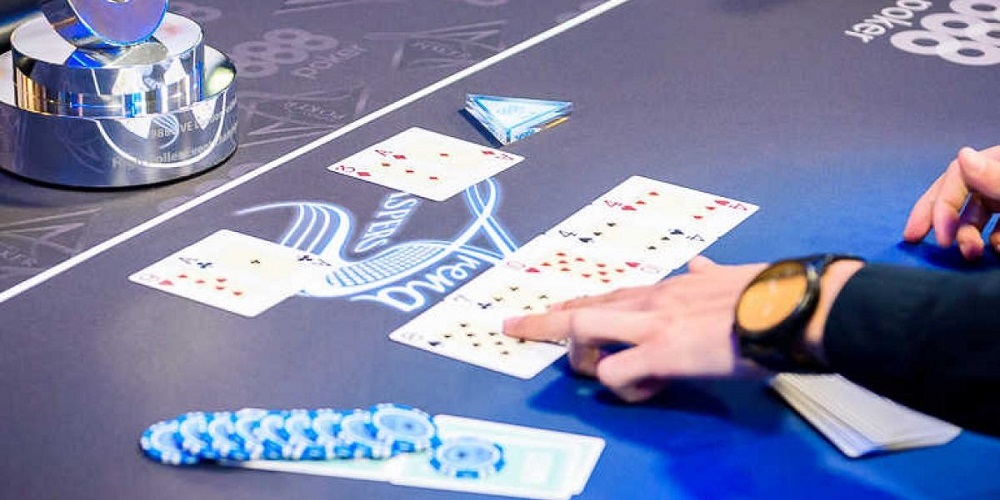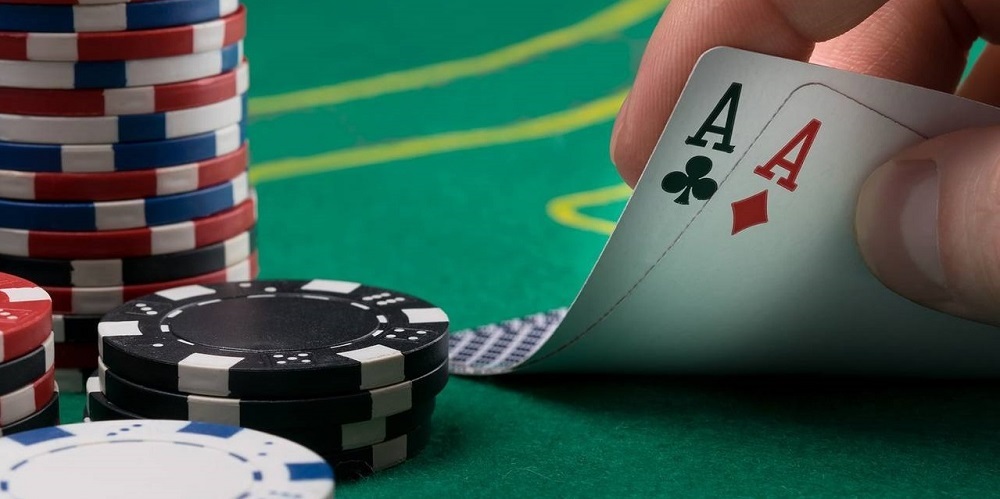Are you a newcomer to poker? We are sure that you will have a great time, but if you don’t know how to play well you will soon start to get frustrated. To start on a good basis, we have prepared a beginner’s decalogue so that you know in which 10 aspects you have to put all your attention to improve as you enjoy playing poker.
Study the rules of the chosen modality
Let’s start with the fundamentals: knowing how to play. Learning the rules is vital to know how to function minimally at the table, and all the poker advice that we can give you will be contingent on knowing how to play. Therefore, you should familiarize yourself with the rules, start putting them into practice in a real game and work on it.
The most widely played modality in the world is Texas Hold’em, but other types of poker, such as Omaha or Open Face Chinese, also have many followers. Play it safe and specialize in one type of poker before dabbling here and there so you don’t get caught up.
Establish routines and fixed times to play poker

One of the best tips to win at poker that we can give you is to create a schedule for playing poker that you can apply on a daily basis. It must be realistic, but you must not forget about the effort. For a professional player, poker is like a job. Hence, it is so necessary to be disciplined and very constant to improve in the game.
The best way to know that you are dedicating the necessary time to poker is to have a time routine, dedicate time to poker and then forget about the game in your leisure time. Remember that the mind must rest, and it is necessary that you enjoy other hobbies so as not to overload yourself.
Have your bankroll under control
One of the things that you will have to learn beforehand is to have your bankroll under control, because whether or not you can continue playing poker depends on it. Of all the poker tips for beginners that you will be able to read here, this is the one that may have the most influence in the future because it will be necessary for you to apply everything you learn here in higher level games, where the BRM (bankroll management) is critical.
Observe and analyze your opponents

The tells is something that must be analyzed yes or yes in a poker game. We understand by tells the indicators of body language that are capable of providing information about the game. Reading them well can serve to intuit what cards the opponent may have and understand what decisions they are going to make, which gives them a considerable strategic advantage.
Being a good tell reader requires patience, experience, and training. Because only by getting used to reading will you know how to do it better and faster.
No decision made on the spur of the moment
Transferring your emotions to the game is a mistake. The euphoria or disappointment you feel at any given moment will always make you make bad decisions. Isolating yourself from those emotions is complicated but essential to be a better player, because you can’t allow yourself to get carried away and be so volatile if you want to get to rub shoulders with the best.
Because there are no poker tips that are worth it if every decision you make is going to be influenced by what you feel at that moment, so work on it and make sure that every play you make is based.
The bluffs, better leave them for now

It is very spectacular to see a live bluff, but that is only within the reach of the best players. Bluffing is risky, and if you are inexperienced and seasoned, it will most likely go wrong. Although it is true that it has to be the first time, being a rookie with few hours of play behind you it is impossible for you to start bluffing and give the bell. Forget about them for now and focus on other matters that also deserve your attention.
Properly read community cards
For example, in this one. Of the 10 tips for playing poker as a beginner that we give you in these lines, this is one of vital importance. Because you have nothing to do if you don’t know how to read and interpret the opportunities that community cards offer you when they come out.
The flop, turn, and river cards are essential to building your hand, and working on this is as necessary as it is beneficial for you.
Strive to improve

This is quite related to the discipline you follow to play. It is clear that without effort you will not be able to achieve anything, and it is important that you really dedicate all your efforts during part of the day to improve. Therefore, set ambitious but realistic goals, inquire about the different types of tables and establish clear relationships between what has happened and the actions taken in the game.
To improve, some computer analysis program can help you to better understand what has happened and what was the optimal move at all times.
Focus on the game and leave everything else for another time
If you are playing poker, you should focus only on the game and ignore the other stimuli in the environment. You need to be focused and train to improve your ability to concentrate, because it is what will often make the difference between making the right decision or not.
You will have time later to analyze other aspects, enjoy some relaxing time with your mobile phone or answer messages that have arrived on your phone. All of that doesn’t matter when you’re playing poker.
Always be responsible and disciplined

If you don’t have a clear attitude of wanting to improve, you won’t get it. Poker demands responsibility, attention, concentration, dedication and discipline. Without that, it will be difficult for you to hope to grow as a player, so make sure that your routines and habits are productive and that you are getting the most out of your gaming sessions.
If you were interested in this post, you can’t miss the content of the following articles:

